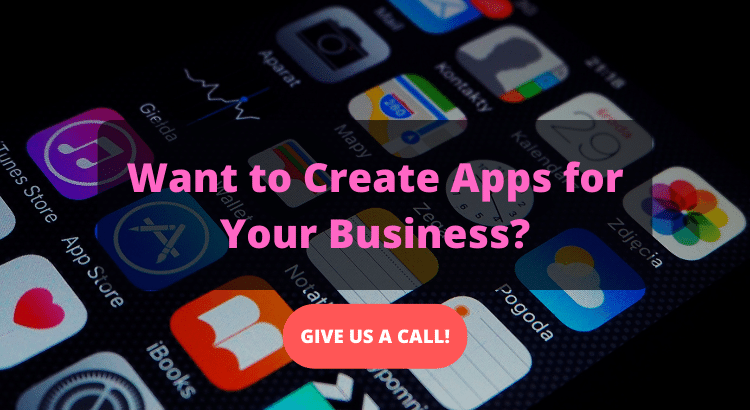The purpose of education is to re-wire people’s thought processes so that they are more receptive to innovative approaches. Since the beginning of time, education has always been at the forefront of technological innovation. As a result, the first edtech startups in the UK came into being. Edtech companies can choose from a wide variety of business models, and it is critical that they do so in order to ensure their success.
Technology is increasingly being used by educators as a resource to assist them to develop innovative strategies for disseminating information to pupils that are not only practical but also successful. Edtech startups, by virtue of the very nature of their sector, are commonly considered as having the potential to have a substantial influence.
Edtech companies help nations develop, productivity expansion, and a reduction in the outflow of bright individuals by striving to make education more widely available and by upgrading the mechanisms that are currently in place to provide information.

In order for an edtech startup to be successful from the very beginning, having extensive knowledge and expertise in the education industry is essential.
The following are a few examples of successful edtech startups in the UK who have gone on to make a name for themselves by introducing unique approaches to teaching and learning in schools.
Best Edtech Startups in the UK
MyTutor
To help students with GCSE, A-Level, IB, and university admissions, the MyTutor portal provides tutoring solutions. Languages, mathematics, and physics are covered in this course. The tutors are current college students who have earned grades of A or A+ in their previous coursework. Students are able to search for teachers based on a variety of criteria, including subjects, geography, and more, and they are able to create a shortlist of potential tutors based on the profiles of potential tutors, which contain all of the qualifications held by the tutors.
It is possible for instructors and students to work together on an interactive whiteboard during the 1-on-1 sessions. Students can review the sessions at a later time because they are recorded. SEEK, Mobeus, Mobeus Equity Partners, and 8 other investors contributed $36 million to the platform’s inception in 2013.
Pi-Top
Pi-top is a Raspberry Pi–powered laptop assembly kit that users can assemble on their own. A screen, a base top, a base bottom, a Hub, and a microcomputer are included in this kit. Users may construct a laptop out of all of the components, as well as learn how to code and 3D print with the help of an integrated Raspberry Pi game. In addition, gives teachers with analytics. Utilizes a pricing model that is depending on the product.
The company began operations in 2014 and has already raised $40 million in capital from a total of ten different investors, including Tactus Group, Arete Capital Partners, Nexus Investment Ventures, and nine others.
FutureLearn
Free online courses are made available by FutureLearn, which is completely owned by The Open University and primarily partners with educational institutions in the United Kingdom. The course catalog offers instruction in a wide variety of topics, including but not limited to the arts, history, business management, mathematics, and the natural and physical sciences. Users are free to join, exit, and re-enter any course at any point in time throughout the life of the course. At this time, the courses are only available in the English language; however, the organization has future intentions to expand its offerings into other languages.
It began operations in 2012 after receiving initial funding of 65 million dollars as a startup investment from SEEK, Matthew Walton, and The Open University.
Fuse
Fuse is a collaborative learning management service that connects learning management systems (LMS) with social networking platforms and communication apps. In addition to content management and gamification, authoring tools and bite-sized films are all included, as are compliance management, reporting, metrics, and chat. Among its customers are Vodafone and Post office, among others. In addition, it operates a nonprofit organization known as Fuse School.
It was established in 2008 and has attracted funding to the tune of USD 36 million from Octopus Investments, Eight Roads Ventures, and Education Growth Partners.
Kortext
Kortext is a content platform that focuses on offering digital textbooks from all of the major textbook publishers in addition to any additional books that are required for the acceptance of courses by educational institutions such as universities.
The user has the option of downloading or reading online when using this platform. Search, highlighting, the ability to add notes, the ability to share, print, and other capabilities are provided. ELSEVIER, Pearson, and Wiley, amongst other notable partners, are some of the company’s collaborators. Its mobile app can be downloaded for use on both iOS and Android smartphones.
During its founding year in 2012, around 33 million dollars in investment capital was contributed by dmg ventures, QVentures, Committed Capital, and three other investors.
The business model of Edtech startups in the UK
How do edtech startups in the UK make a profit? There are numerous organizational structures to choose from.
Freemium Model
It would appear that a sizeable portion of Edtech businesses have settled on the freemium pricing structure as their principal method of generating revenue. Customers get the opportunity to begin using your product for free under this model of doing business, and they also have the option to subscribe to a premium subscription at a later point if they so want.
This could be accomplished in one of two ways: either by restricting the features that are accessible (using a freemium model) or by reducing the amount of time that is accessible (free trial).
Top-down Approach Model
One of the most conventional methods of marketing to educational institutions is to use a top-down or institutional model. First, the size of the market is assessed, and then, using the anticipated rate of penetration as a guide, the volume of the market that is meant to be targeted is established.
The following step is to formulate a plan for achieving the anticipated level of revenue from the market that is being targeted. This is how it works: a school district will make one purchase that will cover all of its individual schools. The top-down paradigm has the benefit of requiring big contracts from the districts, which is a significant advantage.
The Marketplace Model
In the absence of any original content, you can create a marketplace similar to Amazon, where teachers can sell their own curriculum. This type of business model offers teachers the chance to publicize their courses to a sizable pool of prospective students while simultaneously giving the platform a method for generating financial revenue for itself.
Using frameworks such as Zoom-K12, which is an innovative cloud solution for online education designed specifically for K–12 Schools and Colleges, it is possible to build apps for edtech startups in the UK. Teachers can simply create interactive study materials using this online school software’s material builder, which is fully supported by embedded URLs, photos, videos, and YouTube links, amongst other things.








